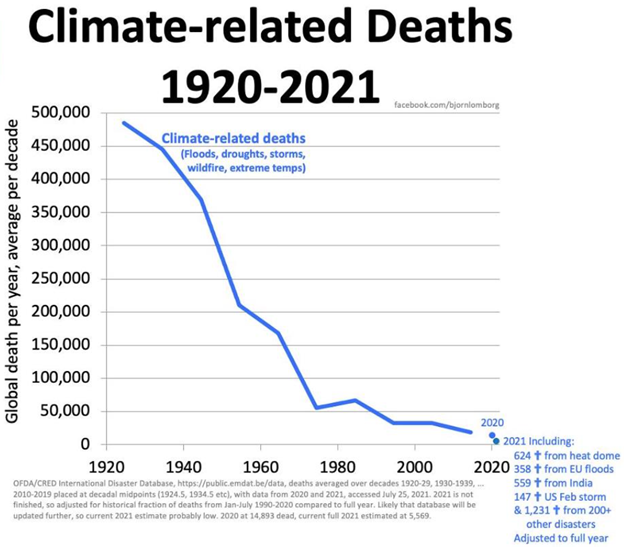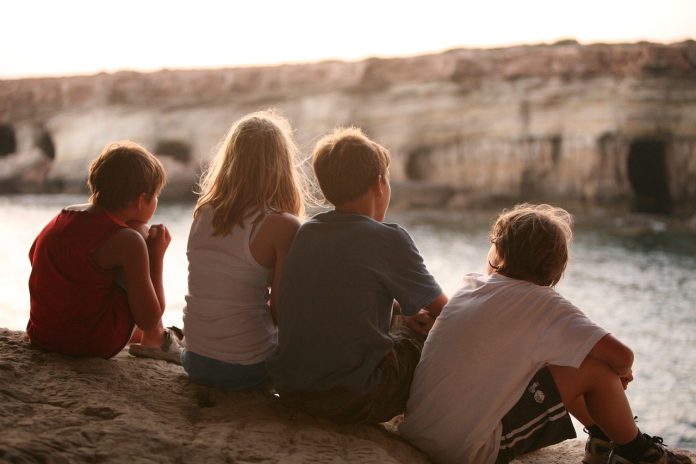A post at a UK website Future Net Zero (FNZ) claims that climate change is causing anxiety in children. This is false. Since climate change is not perceptible, and weather isn’t getting more extreme, it can only be the constant stream of media scare stories and schools pushing the false idea that the planet is doomed without immediate climate action that is traumatizing children. This makes groups like FNZ and those they quote for their story complicit in harming kids mental health.
The article, “Climate change sparks anxiety among children,” discusses a “new campaign” by a renewables company called 100Green which advertises survey results from a study conducted by Save the Children. The study found that 70 percent of kids surveyed “struggle with climate anxiety.”
The post itself, while short, gives you something of a climate-alarm whiplash to read, going from advising parents to “keep things positive when approaching climate change” with their kids, to a quote from Gwen Hines of Save the Children which basically says kids are basically doomed unless her preferred policies are enacted.
Hines said that this generation of kids “stand to inherit a deeply unequal world if immediate action is not taken,” and that their anxiety is “warranted” because of the so-called climate crisis and “growing inequality.”
In reality, the Earth has never been a safer place to live.
Because of modern technology made possible by the use of fossil fuels, both global temperature related deaths and deaths from extreme weather have declined. The decline is significant, too, around 99 percent over the last 100 years, despite and possibly in part because of the modest warming that has occurred over that same period. (See figure below)

Nor have hurricanes, wildfires, tornadoes, or floods worsened, so children can’t have “experienced” anything that would lead them to think the climate is getting worse. Also, contrary to repeated media claims, snow, polar bears, and islands aren’t disappearing.
Amidst these facts, why is it that children are frightened and worried that they face a climate apocalypse?
The answer is simple and obvious: media coverage and propaganda in schools.
As Climate Realism has now discussed several times, the constant media drumbeat pushing misinformation and fearmongering about every weather event, tying them all to climate change without evidence, is unsurprisingly having an effect on kids. This is intentional. As is the push to place climate alarm in the curriculums of classrooms on subjects that don’t seem like they would have anything to do with climate, like ceramics and gym class, as is the case in New Jersey schools. I myself experienced this kind of every-class-is-climate pilot program when I was in an Illinois public school. This kind of coverage is not being demanded by students; it’s being indoctrinated into them before they are even old enough to understand what the decarbonization policies they advocate for would mean.
As an aside, the FNZ post also claims that children today “are set to face seven times more heatwaves during their lives than their grandparents.” This is also false, serving as a great example of how climate alarmist groups spread misinformation in order to frighten people, especially children. Climate Realism has debunked the alarm surrounding heat waves many times, but in essence, the weather history does not show that heat waves are becoming more extreme or frequent in the U.S. or Europe.
FNZ, Save the Children, and the media and educators who are parroting and promoting their climate misinformation, are responsible for kids being terrified about climate change. They are the ones who are telling kids that unless their parents and leaders undertake the radical decarbonization they are demanding, the world will end. This language is so out of line with reality and so severe, some media outlets have even started to question if it isn’t counterproductive.
FNZ and other groups like it benefit from generations of people being terrified. It garners them financial support as well as political influence. It is gross that they harm children’s mental well-being with their own propaganda efforts, only to then use the angst they generate in kids as evidence that the world needs radical decarbonization – it’s for the children after all.

















